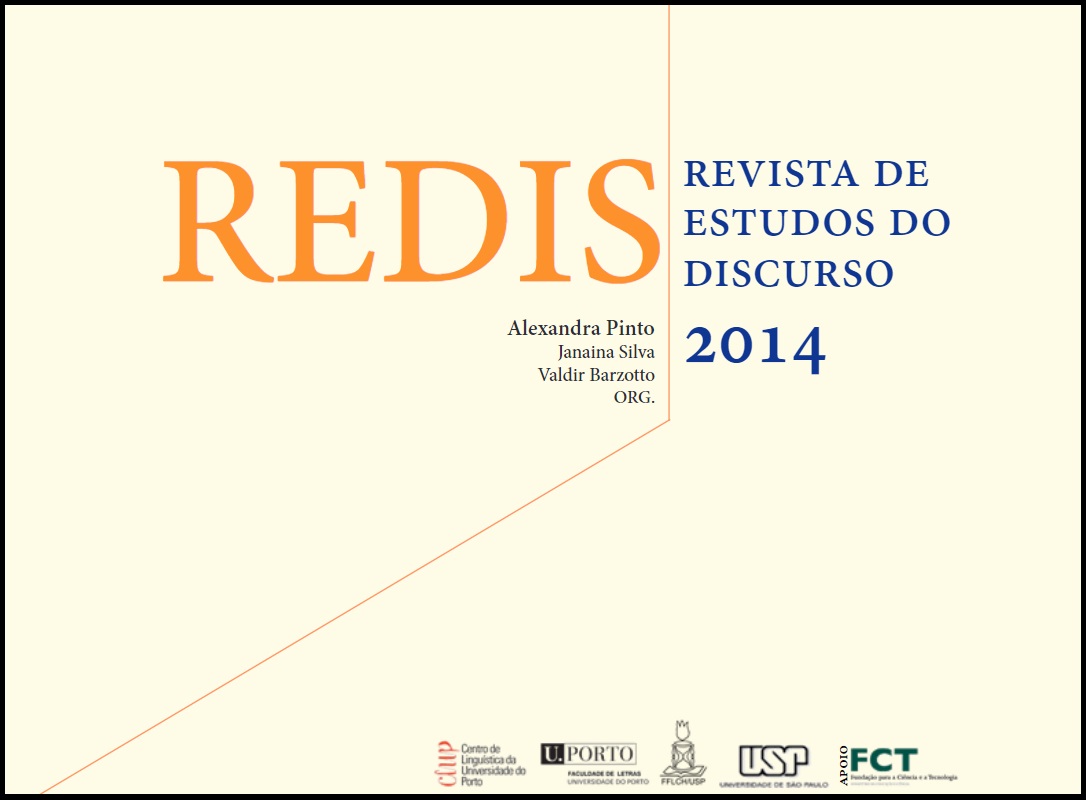Construção dos Ethè em discursos políticos em Portugal e no Brasil: um estudo comparativo
Abstract
The concept of ethos was initially used by Aristotle in his rhetorical studies. Since then, several authors recovered the concept in their linguistic-textual and discursive studies. Ducrot addressed the notion of ethos concerning the distinction between speakers λ and L. Maingueneau associates the ethos to the speaker’s statute and to the process of legitimating what it says. Charaudeau also relates ethos with the speaker, linking it to his social, moral and ideological representations. This contribution, corresponding to an excerpt of a doctoral thesis, aims at identifying the ethè built by Portuguese and Brazilian statesmen in the “year-end” political messages of 2011 and 2012 and analyze its linguistic and textual materiality. To achieve this goal, we conducted a linguistic analysis focused on speech acts (Searle), on Enunciative Responsibility marks (Adam, 2008) and on lexical-textual structures. Preliminary results indicate the existence of specific ethè of each statesman, as well as common ethè, which have similarities and differences regarding linguistic realization. Given these results, raises the hypothesis of these differences, whether of ethè or materiality, are due to cultural issues.
Downloads
Published
How to Cite
Issue
Section
License
The authors give to REDIS. Revista de Estudos do Discurso the exclusive right to publish its texts, in any medium, including their reproduction and sale in paper or digital format, as well as their availability in a free access regime in databases.
















